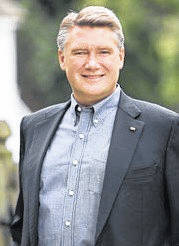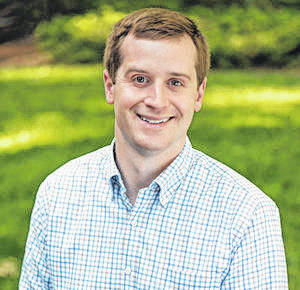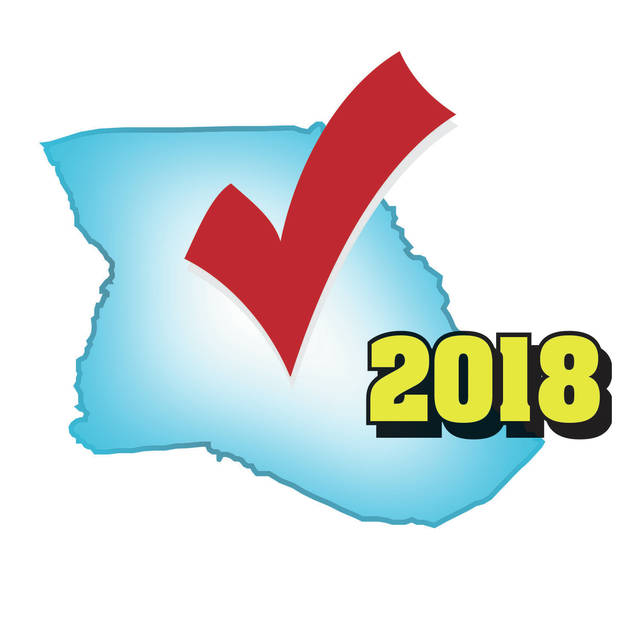Ten weeks after Election Day, there’s still no winner declared in the 9th Congressional District and the tangled web of inaction has expanded.
A new possible outcome has been presented; an affidavit from the Bladen County Board of Elections chairman has been released; and the Washington Post has uncovered evidence the Justice Department was aware of trouble in early 2018 and took no action.
The U.S. House seat formerly held by Republican Robert Pittenger is vacant for now. The state Board of Elections did not certify the race between the Rev. Mark Harris, a Republican, and Democrat Dan McCready.
Harris, a Baptist preacher from Charlotte, is 905 votes ahead in the unofficial tally.
At issue is an allegation of election fraud involving absentee ballots. Bladenboro resident McCrae Dowless is at the center of the investigation that has included subpoenas for Harris’ campaign, the Red Dome Group and Sheriff Jim McVicker’s campaign.
Neither Dowless, Harris, Red Dome Group or McVicker have been accused of wrongdoing by the state board.
McVicker, a Republican, won in November over Democrat Hakeem Brown. McVicker’s edge over Brown in absentee votes was 429-385, and his overall edge was 6,950 to 5,562.
The state board also did not certify the Bladen County District 3 commissioner race, where Republican Russell Priest took a win over Democrat Wayne Edge. Priest won 2,401 to 2,167, with an edge in absentee ballots of 153-83.
Earl Storms’ win for a district supervisor seat on the Soil and Water board was the other race not verified. Storms had 6,708 votes to 5,047 for Charles Gillespie, with a 341-288 edge in absentee ballots.
There’s been no announcement of subpoenas for the other two races not verified. The Bladen Journal has asked for explanation from the state board as to why there would be a subpoena for McVicker’s campaign but his race has been certified, in contrast to no certification and no subpoena for the commissioner and supervisor races.
Through a spokesman, the board said, “If absentee by-mail ballots counted plus (+) absentee by-mail ballots not returned minus (-) absentee by-mail not returned but the voter voted in another way (early voting, Election Day) is less than (<) the unofficial margin of victory, then the race was authenticated by the State Board.
“If that total was greater than the unofficial margin of victory, then the county board was directed not to issue certificates of election in those contests.”
Priest and the legal counsel for the Bladen County Board of Elections said last week that Edge has since offered a letter conceding, or pulling out of, the race. Through Friday there was still no verification; the state board was disbanded by judges at the end of December.
The elections board’s makeup was found unconstitutional after the legislature altered it in 2016. As it probed the congressional race, it was twice given extensions to remain in place. That ended Dec. 28. The new law, restoring the board to how it operated before 2016, takes effect Jan. 31.
Dowless is a two-time convicted felon hired over the years by campaigns for the county sheriff and county commissioners in addition to Harris. He’s worked for campaigns of Democrats and Republicans.
The state Board of Elections sought criminal charges against him between the 2016 and 2018 election cycles but federal attorneys in 2017 and state attorneys in 2018 did not act on Board of Elections Executive Director Kim Strach’s request.
The 9th Congressional District has been without representation in the U.S. House since it was sworn in nearly two weeks ago. Bladen County is split between the 9th and 7th districts, the latter being the more southern half. Republican David Rouzer, of Four Oaks, is the representative for the 7th District.
Harris has filed a lawsuit to be declared the winner of the race. The House is the final arbiter of who is seated.
Congressional intervention
The head of the U.S. House Administration Committee, Democratic Congresswoman Zoe Lofgren of California, asked North Carolina elections officials to preserve all original notes, recordings or documents used in investigating the allegations of ballot fraud. The House may also investigate and ultimately determine the rightful winner of the disputed seat, Lofgren wrote to Strach.
“The Committee is acutely aware of its responsibilities and rights concerning the eventual seating of House Members in disputed or vacant seats,” Lofgren wrote in a letter released Friday by the state elections board.
“Accordingly, it is of the utmost importance that the Board and all parties handling such evidence preserve and protect said material for future inspection by the House, this Committee, and its designated agents.”
Sworn statements by voters and other witnesses have suggested mail-in ballots could have been altered or discarded.
Justice Department
A Washington Post story over the weekend said nine months before the allegations of ballot fraud, the state Board of Elections gave the Justice Department’s main office evidence that Dowless had used similar tactics in 2016.
The Post story said, “On Jan. 31, 2018, the chief of the Justice Department’s Public Integrity Section, which oversees prosecutions of election crimes, met in Raleigh with state officials and U.S. attorney Robert Higdon, according to an elections board spokesman.
“The following day, the state officials sent a public integrity lawyer an eight-page memo describing interviews with two campaign workers who said they were paid during the 2016 election to hand-deliver mail-in ballots to political operative Leslie McCrae Dowless.”
Only voters, their close relatives or guardians can deliver mail-in ballots.
Dowless worked for one of Harris’ campaign vendors.
The Post said it sought comment from the Justice Department, FBI and Higdon. The FBI didn’t return phone calls; the Justice Department and Higdon declined comment.
The newspaper said the FBI was given records after the primary last May. Those suggested new efforts by Dowless. A reminder email to the FBI was sent by Joan Fleming, a state elections investigator, on Oct. 3.
Ludlum affidavit
Bladen County Elections Board Chairman Bobby Ludlum said in a sworn affidavit released Friday that several absentee ballot request forms dropped off ahead of November’s general election were forged. The three forged forms were among 165 requests for mail-in ballots delivered by a woman he didn’t name.
“One of the three was for a relative of mine who told me that two women had asked if he wanted to request a form. He said no,” said Ludlum’s affidavit, which was released by an attorney for Harris’ campaign.
Ludlum’s statement confirms part of an earlier affidavit by Jens Lutz, a Democrat who was the county elections board’s vice chairman before resigning abruptly last month.
Both a subcontractor working last fall for Harris and a black empowerment group supporting Democrats submitted clusters of absentee ballot requests, a legal practice.
Ludlum also denied telling county Democratic Party Chairman Ben Snyder that Dowless discarded absentee ballots.
“I am not aware of anyone in Bladen County ever throwing ballots in the trash or stating that they have thrown absentee ballots or any type of ballot in the trash,” Ludlum said.
Voters have said in other affidavits that Dowless or people working for him collected ballots that were blank, incomplete or stuffed in unsealed envelopes.
Ludlum disputed other claims by Lutz that local elections workers were lackadaisical about protecting the security of completed absentee ballots. Ludlum, Lutz and the county elections board’s two other members voted unanimously last year that an unlocked door between the ballot storage room and another government office should be secured and an alarm and security cameras installed.
County officials refused to spend the money, however. The U.S. Department of Homeland Security, which assessed the site shortly before this year’s election, said in a report obtained by The Associated Press that the unlocked door made voting materials vulnerable.
Ludlum also disputed Lutz’s claim that Dowless enjoyed close relationships to key local elections workers, and that they allowed him to copy ballot request forms complete with voter’s signatures and Social Security and driver’s license numbers. Lutz said those details could give Dowless the ability to request mail-in ballots for anyone who has ever voted that way in recent years.
Neither Dowless “nor any other unauthorized person was allowed to take and copy un-redacted absentee ballot request forms with confidential information on them,” Ludlum’s statement said. “Dowless was not given greater access to absentee ballot or other information than was given to other citizens.”
(The Associated Press contributed to this story.)





